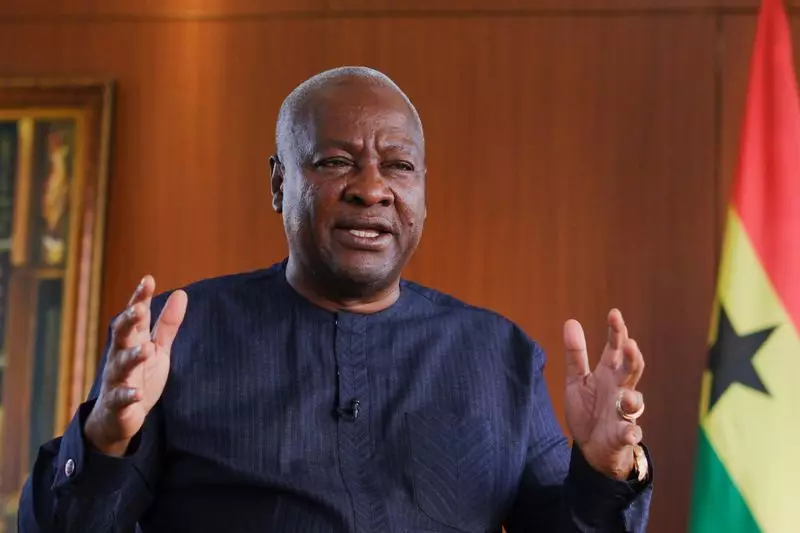Ghana is at a pivotal moment in its economic journey, with newly elected President John Dramani Mahama poised to take the reins during one of the nation’s most challenging periods. Following a decisive electoral victory on December 7, where he secured 56.55% of the votes, Mahama steps back into leadership with a renewed focus on economic recovery and reform. His commitment to not abandon the $3 billion bailout from the International Monetary Fund (IMF) signals both continuity and a desire for change in how those funds will be utilized.
Strategic Review of the IMF Program
Mahama’s approach toward the IMF bailout reflects a nuanced understanding of Ghana’s economic landscape. He emphasizes the need to renegotiate terms, not to abandon the program altogether but to adapt its parameters to better fit the current realities facing Ghanaians. Crucially, he acknowledges the previous government’s failings, including excessive spending and a lack of effective measures to control inflation. His promise to refine the agreement seeks to alleviate economic distress and prioritize essential services, marking a proactive strategy that distinguishes his leadership from that of his predecessor, Nana Akufo-Addo.
“It’s vital that within the framework of the IMF’s assistance, we identify areas for adjustment,” Mahama stated, underscoring his vision for a cooperative relationship with international partners. This sentiment bodes well for a country that has struggled with high living costs and a depreciating currency, factors that have compounded the financial strain on its citizens.
Addressing the Economic Crisis
Ghana’s economy is emerging from a severe crisis, characterized by upheaval in its crucial cocoa and gold sectors. The country, recognized as the world’s second-largest producer of cocoa, has witnessed significant fluctuation in both demand and pricing. Mahama’s administration will need to navigate these turbulent waters carefully, as he aims to stabilize not only the cocoa industry but also the broader economic framework. His commitment to tackling inflation and currency volatility will be essential in restoring public confidence and ensuring that citizens can afford basic necessities.
During his previous term from 2012 to 2016, Mahama implemented policies that ultimately contributed to economic growth, but challenges persisted. The current climate is indeed dire, as he admits, necessitating a rigorous focus on strategic investments that can enhance productivity and alleviate financial burdens on households.
A considerable aspect of Mahama’s proposed reforms involves curtailing wasteful government spending. He warns against the “multiplicity of taxes” that can stifle business growth and entrepreneurship, highlighting the need for a more business-friendly environment. Bringing the pressure of accountability to government spending, Mahama emphasizes that if the government expects citizens to tighten their belts during economic struggles, it must exemplify that same discipline at the highest levels.
In line with this, the President-elect has expressed intentions to review the expenditures attributed to his own office, advocating for transparency and fiscal responsibility that resonate with the average Ghanaians’ concerns.
One of the most pressing challenges facing Ghana is its energy sector. Mahama characterizes Ghana’s electricity company as the “sick man” of the energy chain, underlining the urgent need for reforms that will prevent recurring power outages. Sustainability in the energy sector will be a priority in the upcoming negotiations with the IMF. Mahama is determined to implement solutions that ensure reliable power supply, which is crucial for both households and industries.
This focus on energy reform is particularly timely, as Ghana’s energy deficits have the potential to undermine recovery efforts across other economic sectors. By fostering dialogue with stakeholders and leveraging IMF insights, his administration can draw up plans that will not only remedy the immediate crisis but also set a foundation for long-term energy stability.
John Mahama’s return to Ghanaian leadership is marked by his commitment to restoring economic stability and enhancing the quality of life for Ghanaians. By pledging to engage thoughtfully with the IMF program, reassess national expenditures, and revitalize the energy sector, Mahama is poised to address the multifaceted challenges facing his nation. As Ghana navigates this transitional period, the efficacy of his reforms will be crucial for fostering resilience and promoting sustainable growth in the years to come.

